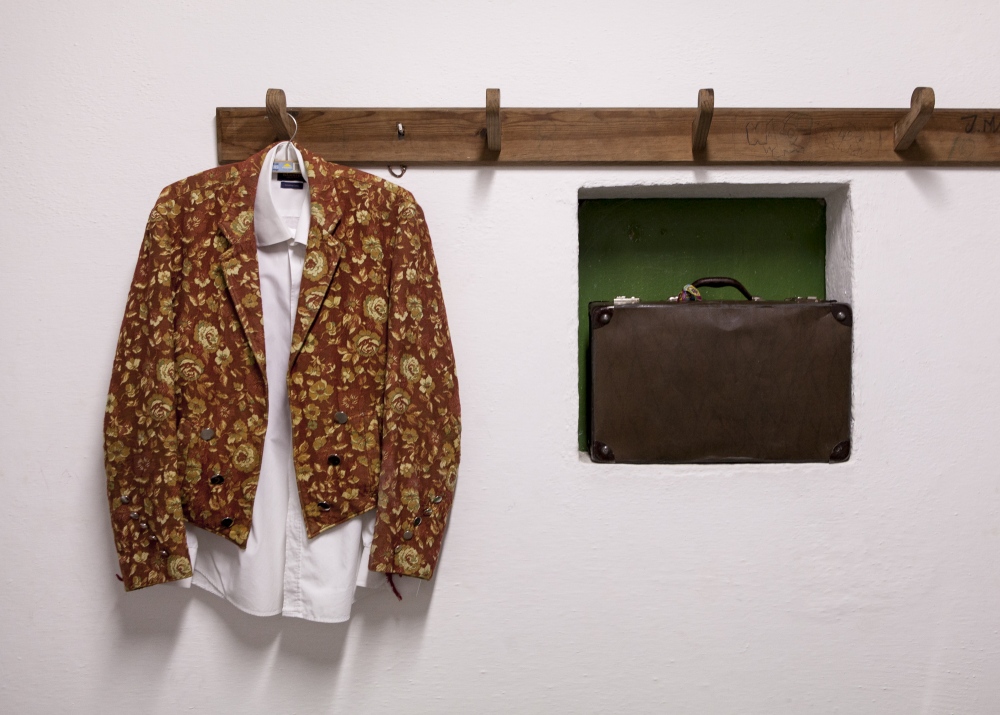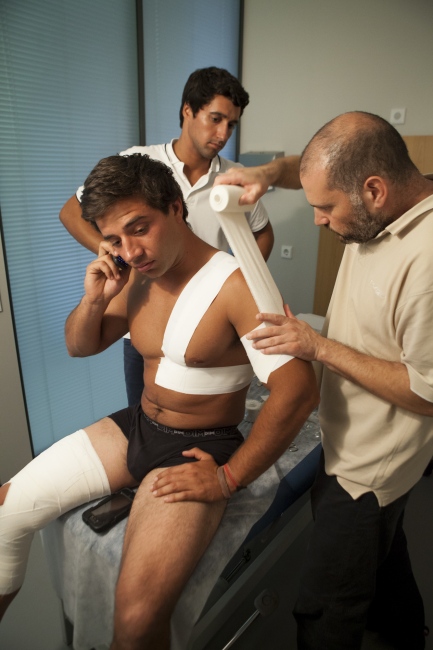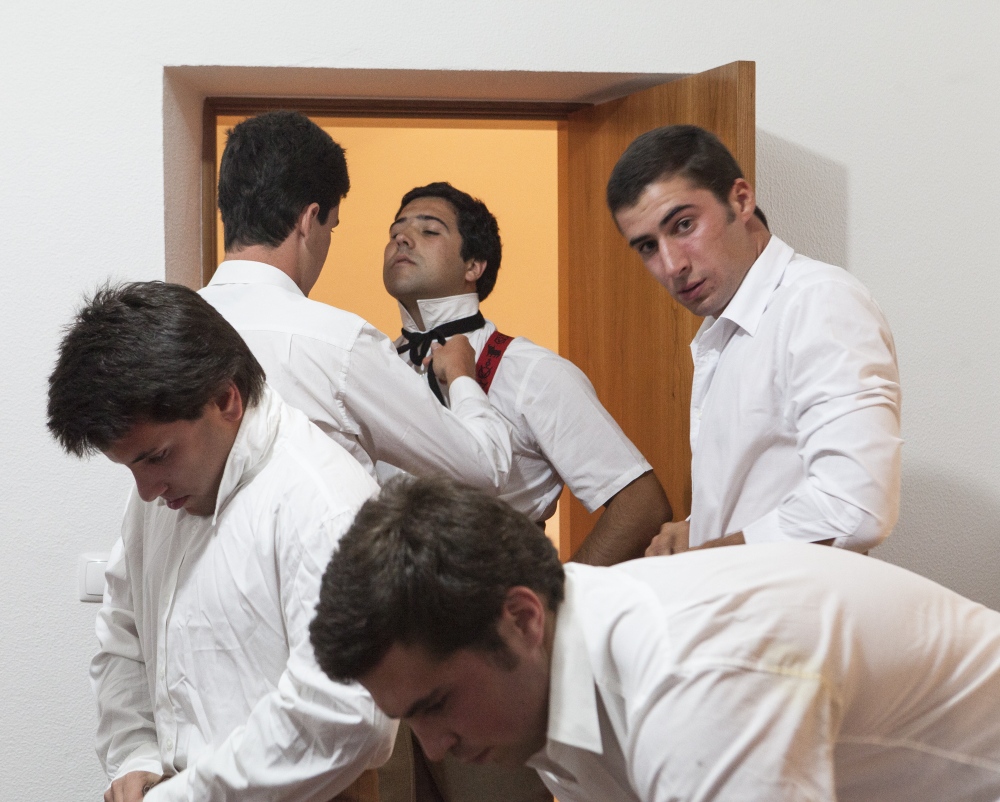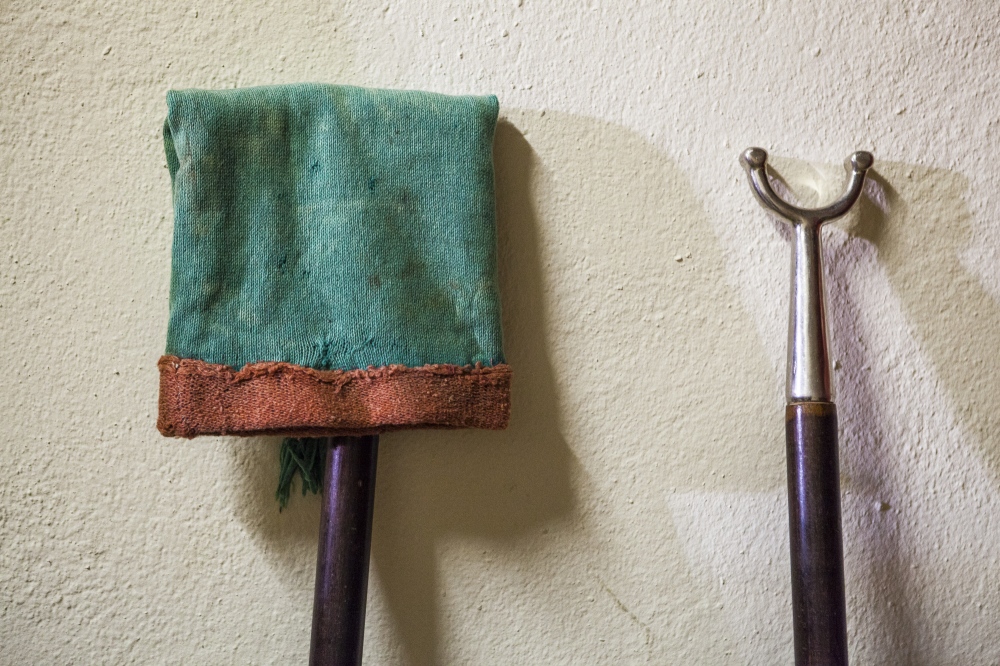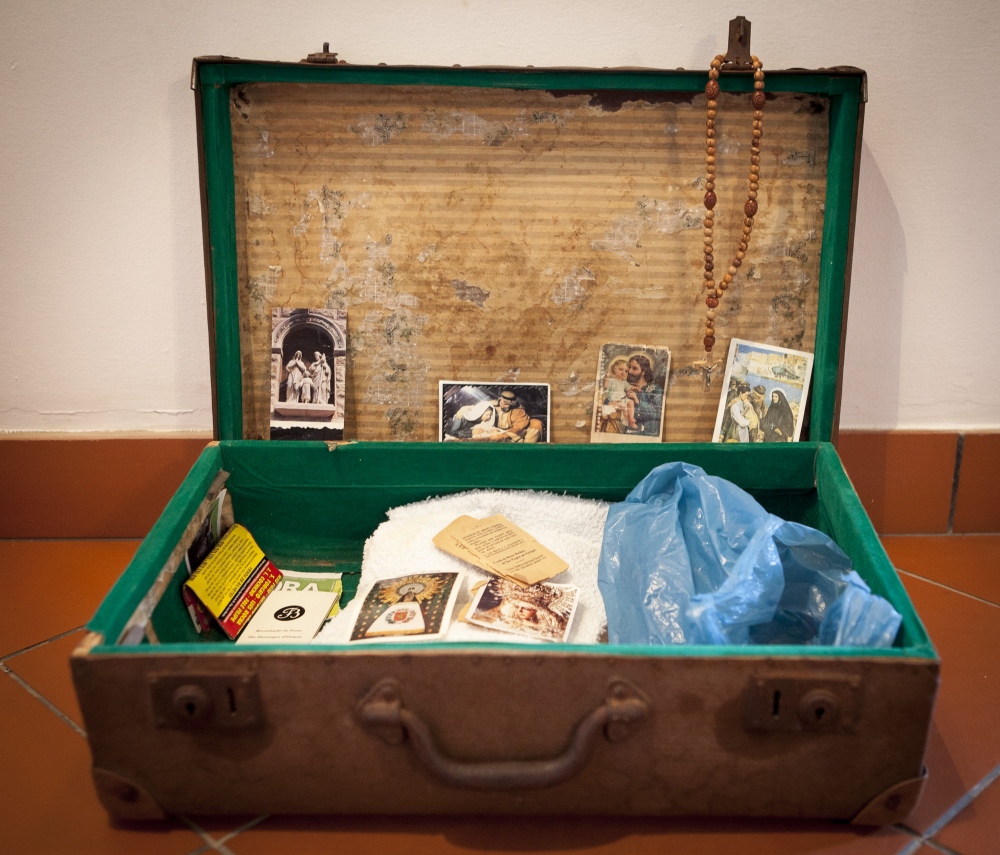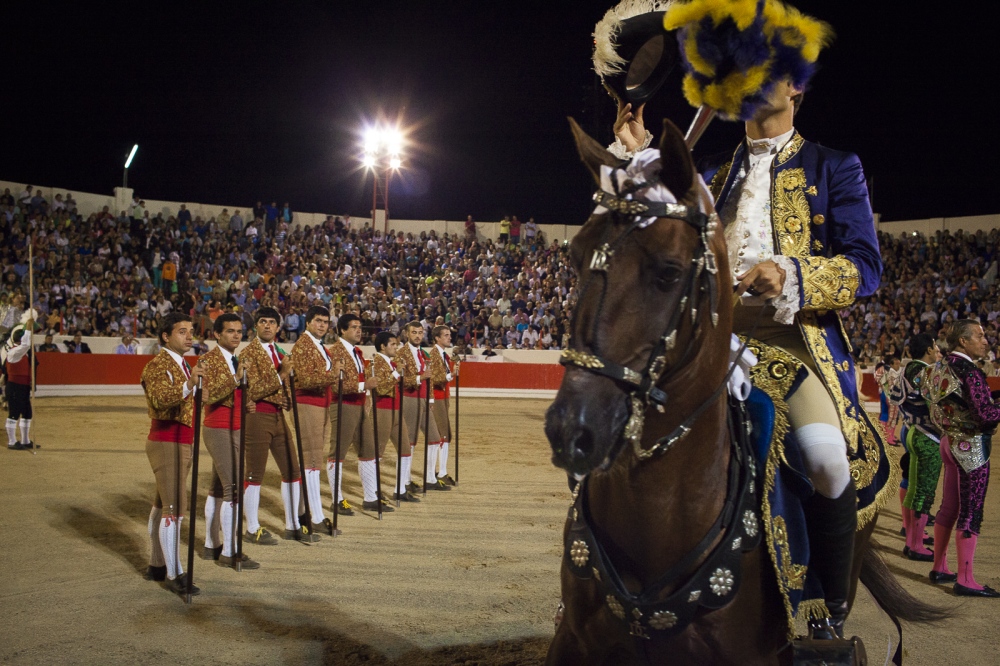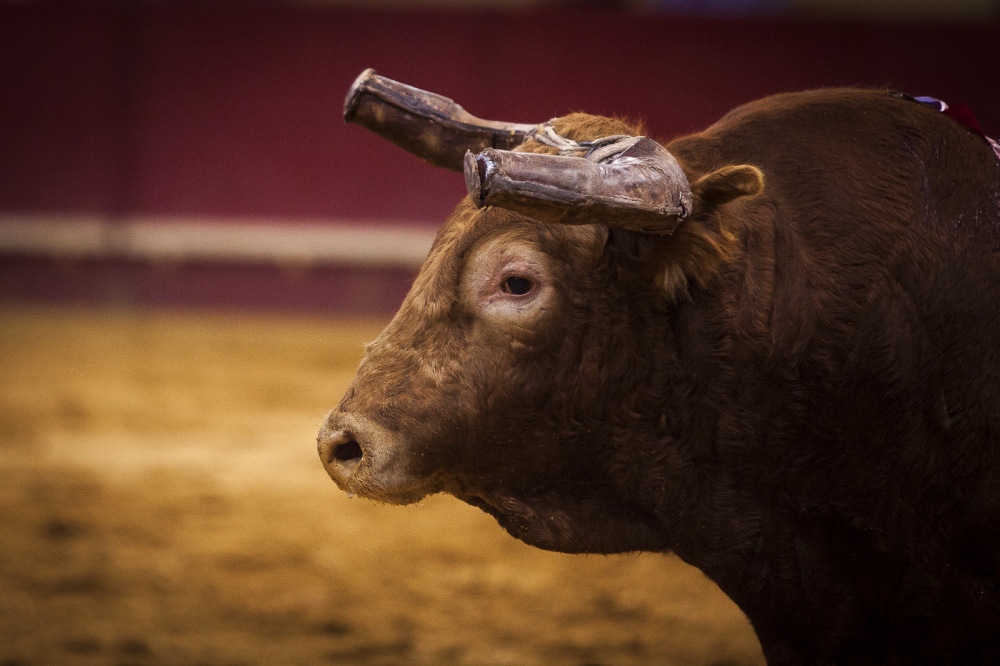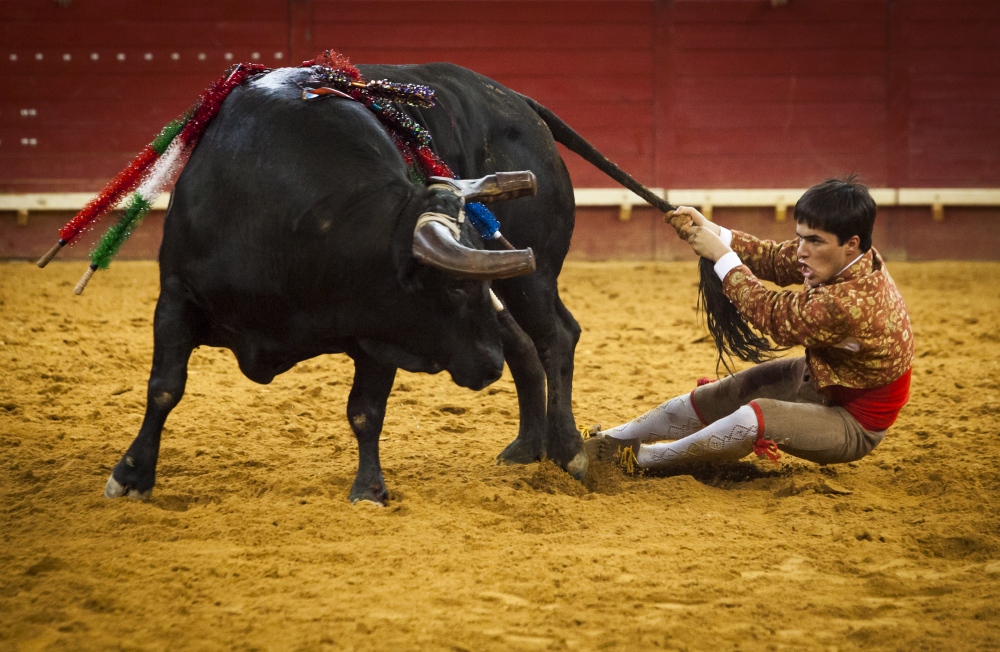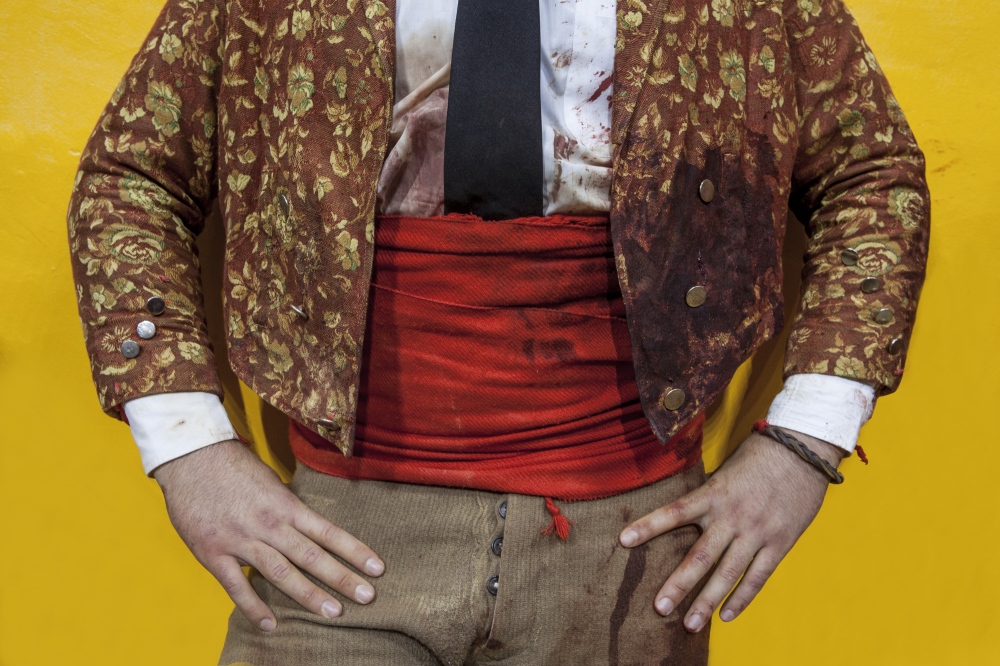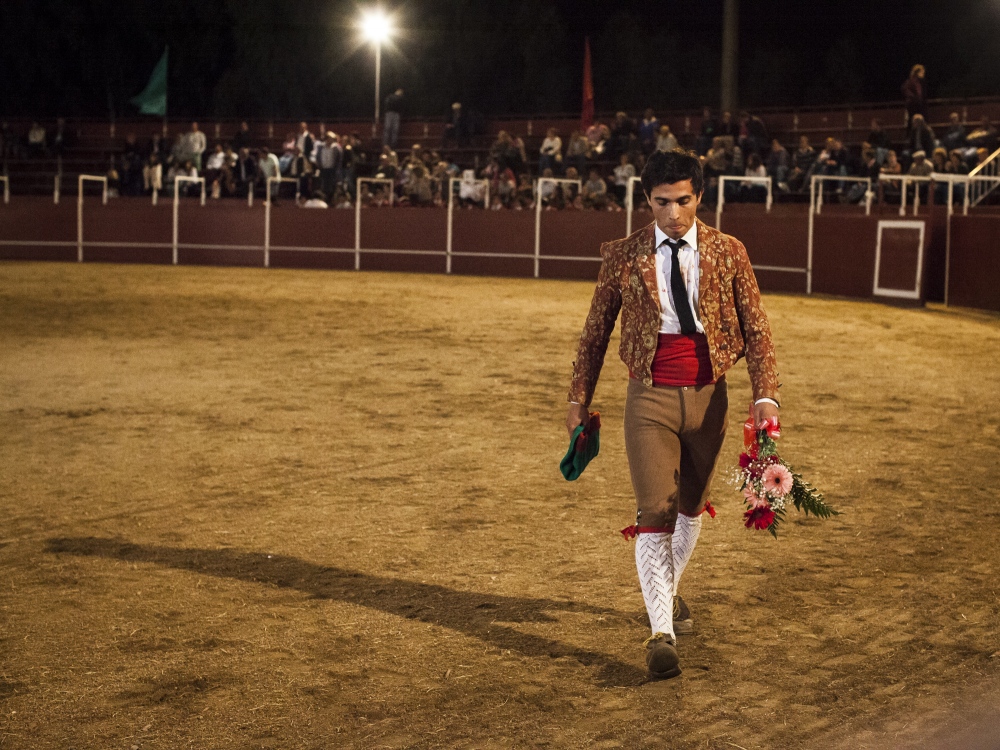Portuguese forcados lies somewhere between the bull riders of the Americas and the bloodier bullfighters of Spain. Unlike in Spain, where the bull is stabbed to death if the matador manages to win the contest, the forcados wrestle the animal (whose horns are capped) with their bare hands as a display of determination and bravura. The Spanish recently moved to permanently legalize deadly bullfighting (after the region of Catalonia outlawed it), but Portuguese royal law banned the killing of bulls in the arena in 1836. And while few can say the bull enjoys himself overmuch in the Portuguese arena, he does live to see another day.
Usually, a group of eight forcados challenge the bull in concert. The frontman provokes the bull into a charge so that he can perform a pega de cara (a "face catch"). He secures the bull by its neck or horns and must maintain himself on the bull"™s head until the other members of the group can hold the animal and enable the man to extricate himself. The team's rabujador then holds on to the tail to finish off the performance.
The forcados are amateurs. Each team earns as little as €600 per contest, which allows them to pay for the group's insurance and perhaps a celebratory dinner after the match. But still, they do it year in and year out, because they are young men with much to prove, and a tradition to uphold.

